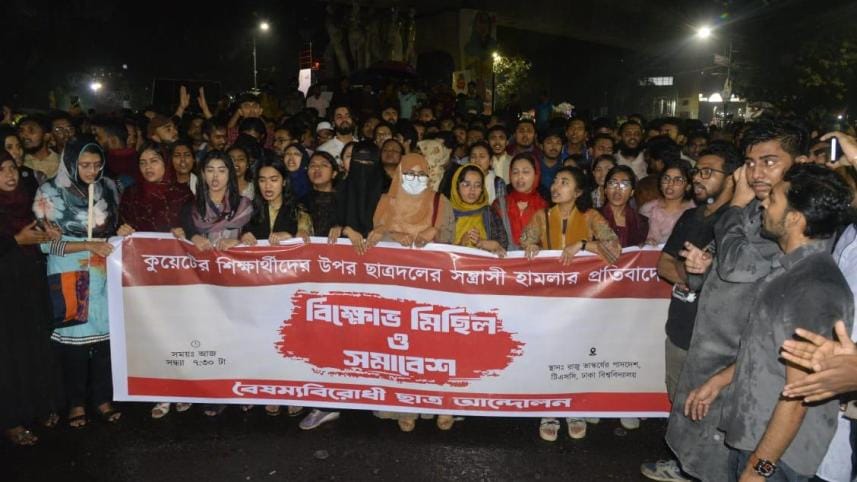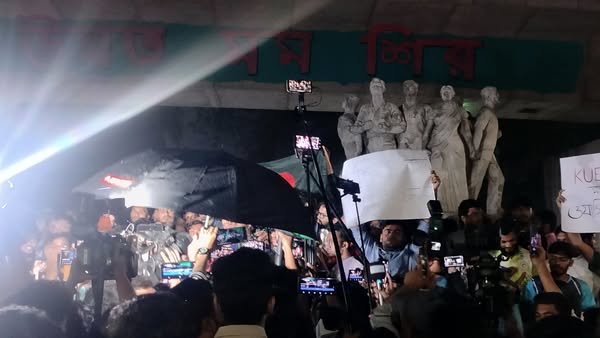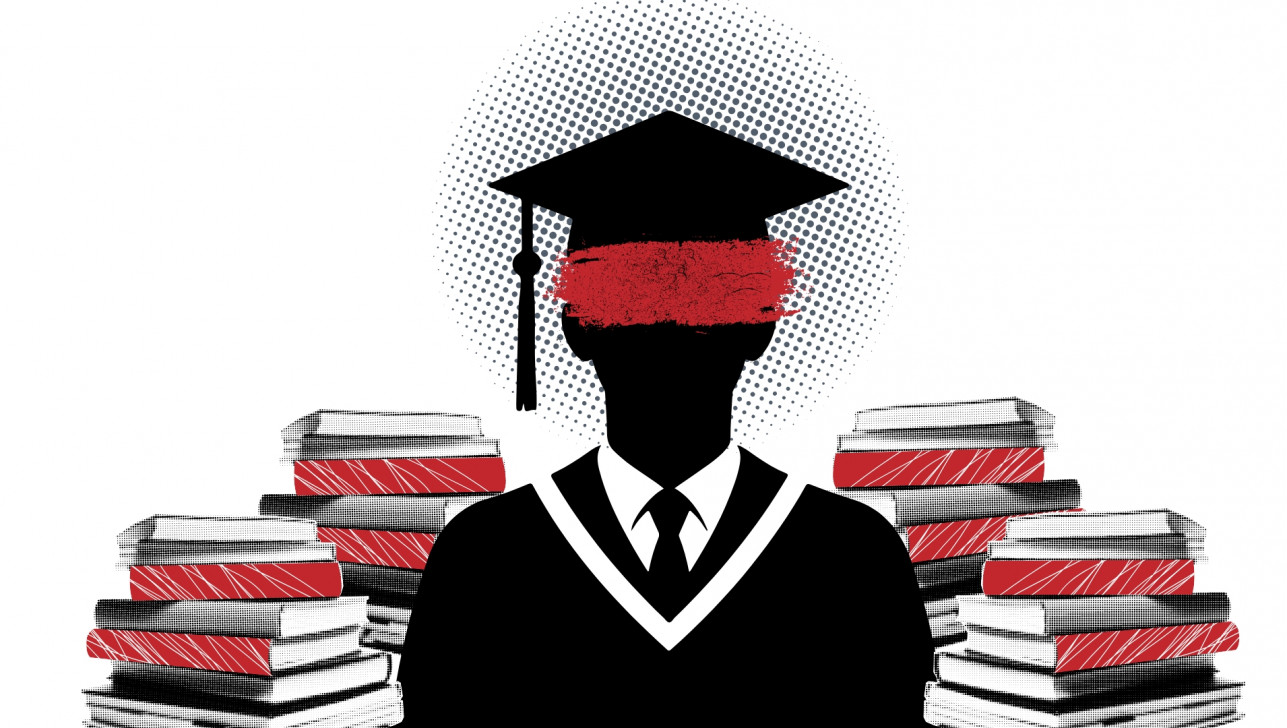Are we returning to divisive campus politics?

The events that unfolded at Khulna University of Engineering and Technology (KUET) on February 18 serve as a stark reminder of the direction Bangladesh's educational institutions are heading. It should be looked at as more than just an isolated incident, but more as a preview of what the future holds if we continue down the same perilous path. The rapid resurgence of age-old toxic practices on campuses is alarming. What happened at KUET is nothing less than a betrayal of the sacrifices made during the upheaval of 2024—a time when people bled and endured lifelong suffering in pursuit of a better future. Those who wish to understand the true essence of 2024 need only revisit the videos and graffiti from that time. The message was clear: the stranglehold of partisan blindness, campus violence, and opportunistic hypocrisy had to end.
For the last four to five decades, how many true leaders have emerged from student politics? If we examine the legacy of recent campus-based politics, the results are disheartening. Instead of nurturing responsible, visionary leaders, student politics has often devolved into factional brawls, extortion, deception, dormitory takeovers, and the exploitation of campus resources for personal gain.
The repercussions of this flawed system are evident in the country's governance today. Many of those who once indulged in student politics have moved on to become police officers, bureaucrats, teachers, and tax officials. The practices they learnt on campus—intimidation, manipulation, and corruption—are now deeply embedded in the fabric of Bangladesh's institutions.
What kind of educational environment do we truly want for our students? What should a university campus represent? We envision a campus where students exhibit such discipline and responsibility that they, alongside a few administrative staff, can efficiently manage their residential halls. This model, followed by top universities worldwide, not only streamlines administrative functions but also nurtures future leaders.
Universities should be hubs for intellectual discourse, debate, and dialogue. Students must learn to engage with diverse perspectives, embracing inclusivity and critical thinking rather than blind allegiance to any political ideology. A politically aware student body should prioritise education-centric activism—demanding increased funding for academic research, well-stocked libraries, nutritious food in canteens, and better living conditions in dormitories. These are the real concerns that affect students' lives and futures. When injustice occurs anywhere in the country, students should rise above political affiliations and speak out. Corruption and oppression know no political colour, and neither should the voices of the youth.
If student politics continues to promote division rather than unity, how can these same students later contribute to building an inclusive society? The primary duty of students is to pursue education and research. Beyond that, they should engage in social service, sports, and cultural activities. But under no circumstances should they allow themselves to be used as pawns in partisan power struggles—especially not during their formative years.
For a while now, politicians have been uttering nice words—words designed to erase the memory of 2024, like an eraser slowly wiping away hard-fought progress. Now, every political party seems eager to erase the lessons of that transformational year, rushing to restore the very system that so many fought to change.
If we do not act now, if we do not demand accountability and resist the return to divisive politics, our universities will continue to be breeding grounds for corruption and chaos rather than institutions of innovation and learning. The events at KUET are a warning—one we ignore at our own peril.
Dr Kamrul Hassan Mamun is professor in the Department of Physics at Dhaka University. He can be reached at khassan@du.ac.bd.
Views expressed in this article are the author's own.
Follow The Daily Star Opinion on Facebook for the latest opinions, commentaries, and analyses by experts and professionals. To contribute your article or letter to The Daily Star Opinion, see our guidelines for submission.




 For all latest news, follow The Daily Star's Google News channel.
For all latest news, follow The Daily Star's Google News channel. 

Comments